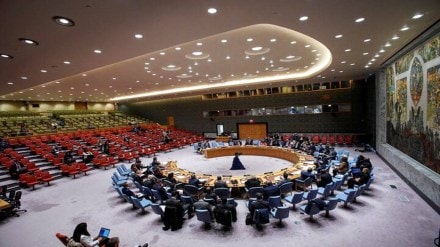On January 1, 2025, Pakistan assumed a two-year term as a temporary member of the United Nations Security Council (UNSC). This marks the eighth time Pakistan has secured a seat in the prestigious 15-member panel. While the move is presented by Pakistani diplomats as a chance for the country to play an active role in resolving global challenges, concerns, particularly from neighbouring India, revolve around Pakistan’s past history of using terrorism as a state policy and how it may leverage its position within the UNSC to further its agenda.
A Vow to Fight Terrorism or a Distraction from Reality?
Pakistani diplomat Munir Akram, upon the country’s acceptance of the UNSC membership, assured that Pakistan would work towards providing “active and constructive solutions” to global challenges, including combating terrorism. Akram’s statement echoed Pakistan’s commitment to preventing the “negative effects” of terrorism, a laudable goal on paper. However, this pledge rings hollow when juxtaposed with Pakistan’s history of supporting, harbouring, and even sponsoring terrorist groups on foreign soil, especially in neighbouring India and Afghanistan.
For decades, Pakistan has been accused of using terrorism as a tool of statecraft, notably through its support of militants in Jammu and Kashmir and other parts of India. The country has long faced international criticism for its complicity in the rise of groups such as Lashkar-e-Taiba and Jaish-e-Mohammad, which have carried out deadly attacks on Indian soil, including the 2008 Mumbai attacks. This context makes Pakistan’s rhetoric about fighting terrorism at the UNSC seem somewhat insincere, raising questions about its true intentions.
The UNSC and Pakistan’s Role
The UNSC, one of the most powerful bodies of the United Nations, is tasked with maintaining international peace and security. Comprising 15 members—five permanent (the U.S., the UK, France, Russia, and China) and ten temporary members—Pakistan’s term as a non-permanent member will span from January 1, 2025, to December 31, 2026. These temporary seats rotate every two years and are assigned regionally. Pakistan’s inclusion in the UNSC follows its replacement of Japan, which held the Asian seat previously.
The non-permanent members do not have veto power but do have the ability to vote on a range of issues. Pakistan’s role in voting and shaping resolutions will be significant, but not absolute. While it can influence debates and decisions, it cannot unilaterally block proposals from other member states. However, its influence could still be substantial in certain areas, particularly in forums where strategic alliances matter.
Potential Implications for India
India, which shares a fraught history with Pakistan, is watching the developments closely. One of the most pressing concerns is that Pakistan, now seated on the UNSC, could use the platform to advance its long-standing agenda on Kashmir. Over the years, Pakistan has consistently raised the Kashmir issue in various international forums, and it is expected to continue this practice at the UNSC.
Moreover, Pakistan’s membership in the UNSC could grant it access to influential committees, including the Islamic State and Al-Qaeda Sanctions Committee, responsible for identifying and imposing sanctions on individuals and groups linked to terrorism. While Pakistan may claim to support anti-terrorism efforts, there is a genuine concern that it could potentially sabotage efforts to sanction terrorist entities or even push back against measures targeting groups that operate in its sphere of influence.
Additionally, Pakistan’s role in the UNSC could serve as a means to project its influence globally, especially among Islamic countries, by framing itself as a key player in the fight against terrorism while simultaneously promoting narratives that align with its national interests, including its position on Kashmir and its rivalry with India.
The Path Forward: Scrutinizing Pakistan’s Actions
For Pakistan, this moment at the UNSC provides an opportunity to demonstrate its commitment to international peace and security. However, its track record raises doubts about whether the country will act in good faith or use its position to further destabilize the region and promote ideological agendas under the guise of anti-terrorism efforts.
The global community, especially India, must closely monitor Pakistan’s actions on the Security Council. While Pakistan may assert its role in combating terrorism, it will be crucial to see whether its actions align with its rhetoric. As the UNSC is a forum for addressing the most pressing global security issues, Pakistan’s two-year term offers both risks and opportunities for global diplomacy, and its impact on India and the wider world remains to be seen.
Bottomline
Pakistan’s vow to fight terrorism from the UNSC, while superficially a positive statement, must be viewed in the context of its own history of supporting groups involved in cross-border terrorism. As Pakistan assumes its temporary role in the UNSC, the international community must remain vigilant and assess whether its actions will match its rhetoric, or if it will use its new platform to further its own geopolitical goals at the expense of regional and global security.
